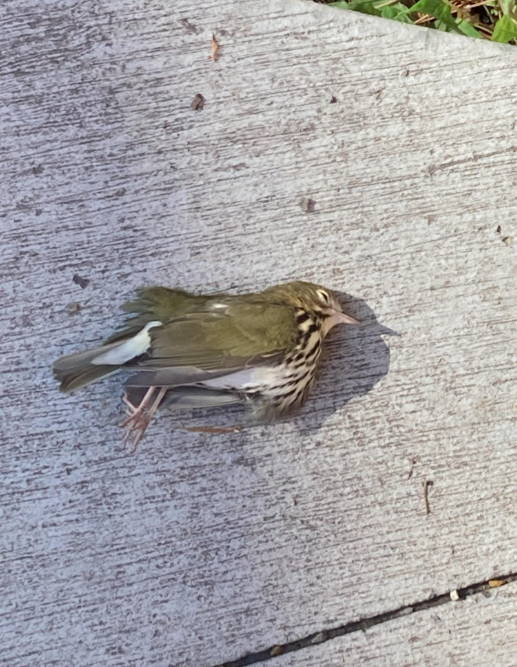BIRD COLLISION REPORTING
How to report a building collision
Human-made infrastructure—homes, buildings, industrial facilities, radio and cell towers—creates some of the biggest threats to birds due to the artificial light at night these structures emit and the reflective glass in many windows.
dBird—an NYC Bird Alliance and Birds Connect Seattle project—offers anyone a way to report the dead or injured birds you find in less than two minutes. The data that this citizen-science project collects helps guide conservation and advocacy efforts—such as Lights Out Louisville—that aim to reduce human-made hazards to birds.
How to help an injured bird
When a bird survives a building collision, it needs a quiet, dark, safe place to rest and recover. If you find a bird on the ground near a building or home:
Click here to find a wildlife rehab facility near you.
Note: Most rehabbers in KY will not take injured songbirds (passerines). If you find an injured songbird and you’re able to transport it to a rehabber, please call Rose at 812-949-8618. Rose is a songbird rehabber listed on the above website and she can direct you on how to proceed.
Important: Highly pathogenic avian influenza (HPAI) has been reported in Kentucky. Do not attempt to contain or handle birds with HPAI symptoms: swimming in circles; lethargic; unable or unwilling to fly; exhibiting head tremors; and/or moving in an uncoordinated fashion.
Kentucky Fish and Wildlife asks for reports of wild birds that exhibit HPAI symptoms. Learn how to report suspected avian flu.
